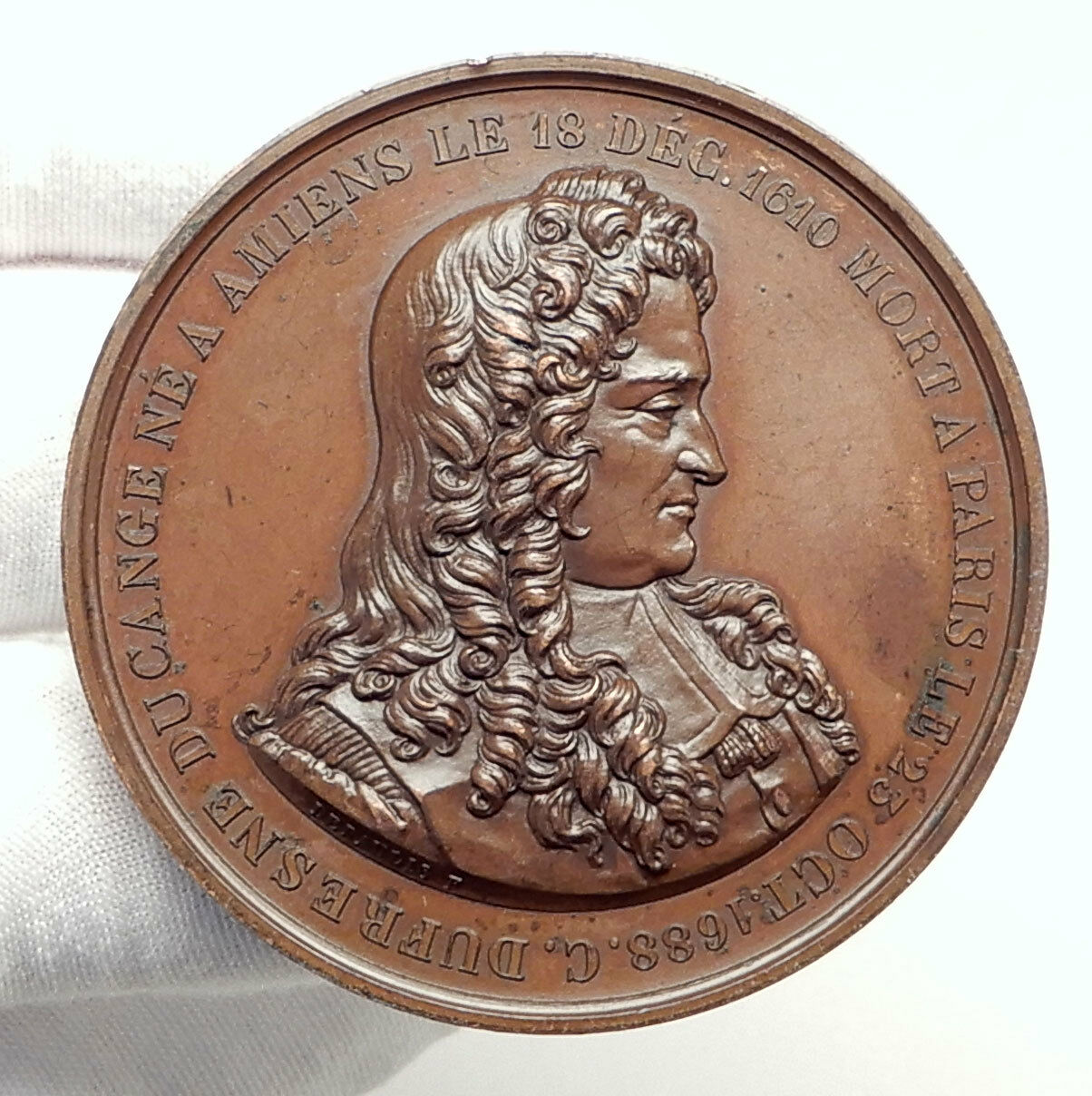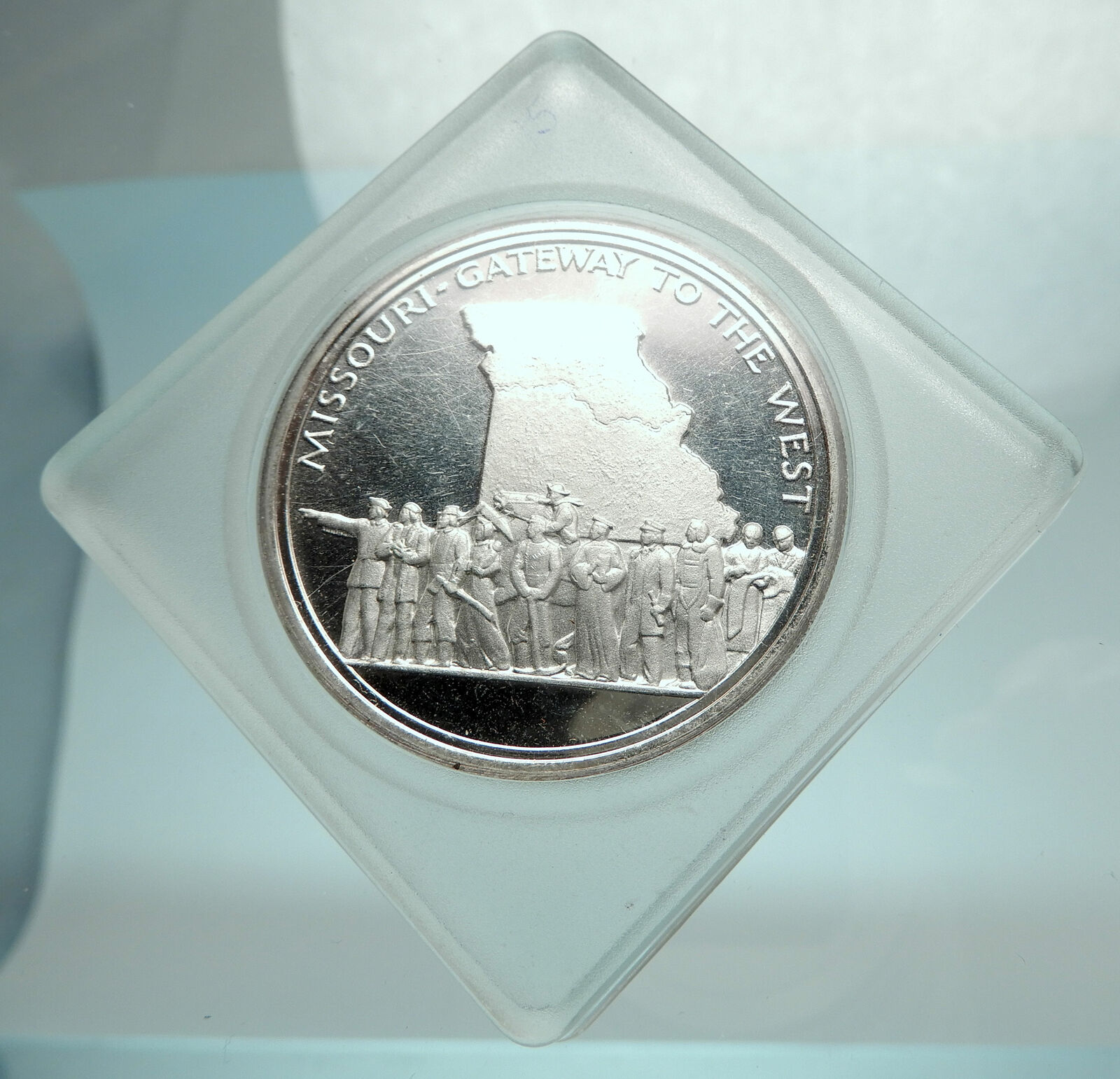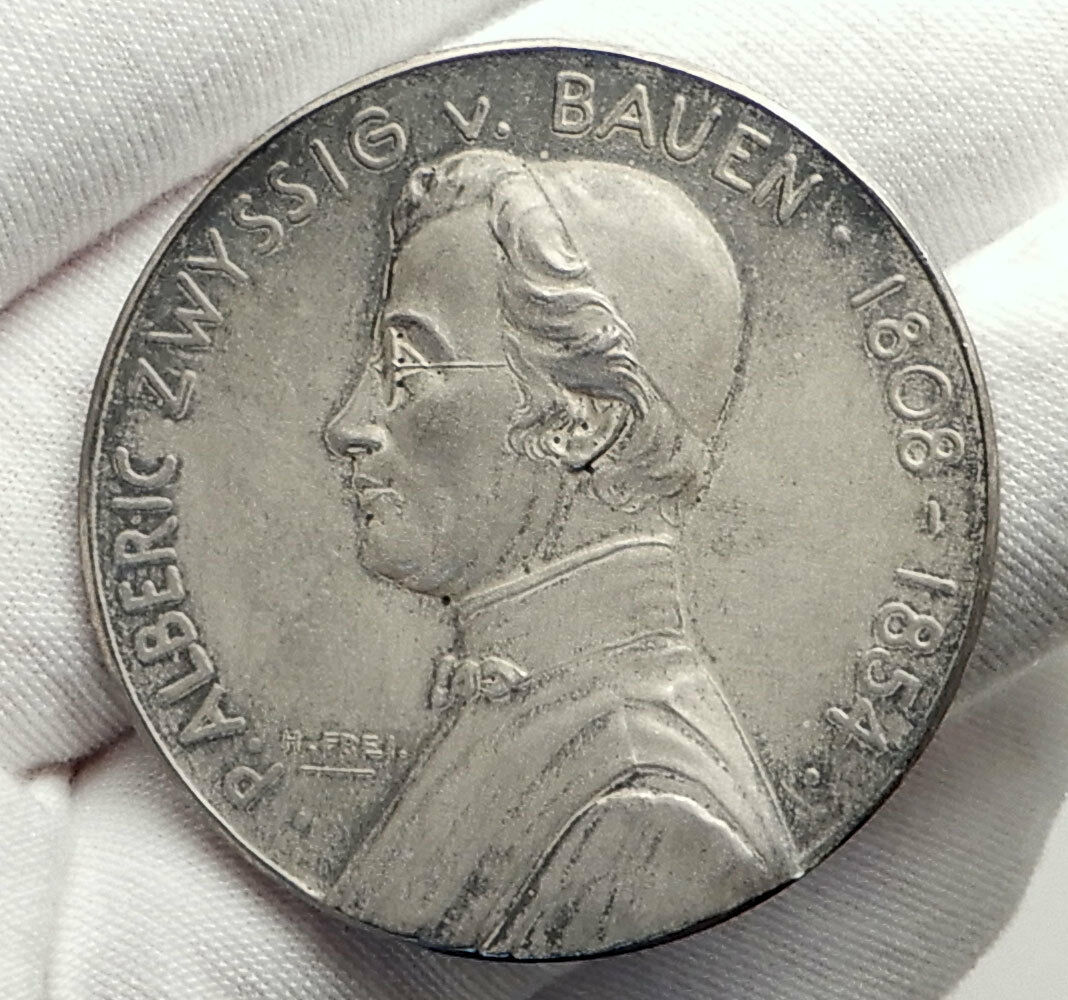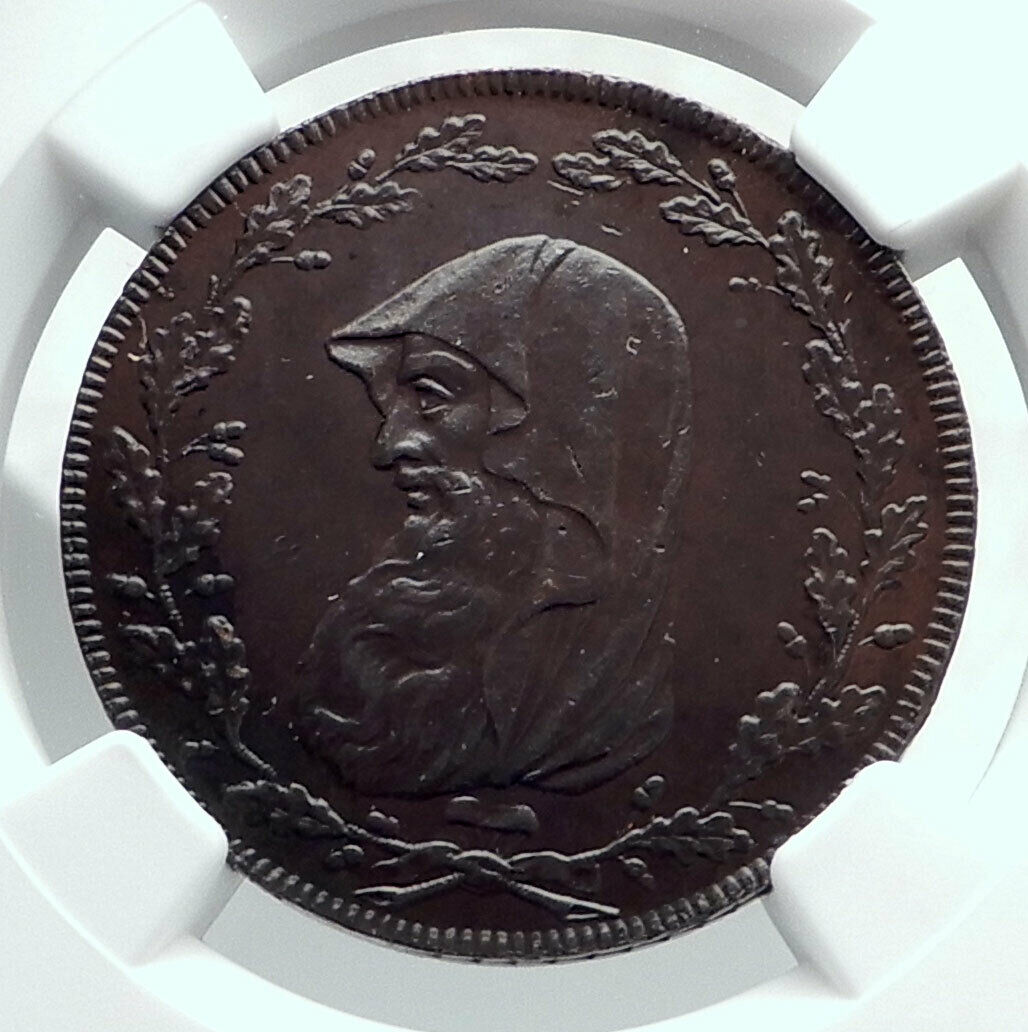|
Richmond Masonic Association Medal – Cuckoldstown Inn
Richmondtown, Staten Island, NY
1976 Medal – White Metal 37mm (26.39 grams)
1776 – 1976 CUCKOLDSTOWN INN RICHMONDTWON, STATEN ISLAND, N.Y., Inn with anniversary dates.
TWO HUNDRED YEARS OF BROTHERHOOD SERVICE CHARITY G RICHMOND MASONIC ASSOCIATION, Masonic Compass and Square above and below G.
You are bidding on the exact item pictured, provided with a Certificate of Authenticity and Lifetime Guarantee of Authenticity.
 Richmondtown is a neighborhood in the Mid-Island section of Staten Island, New York City. It is bounded by Arthur Kill Road on the northwest, Richmond Road on the north, Amboy Road on the east and southeast, and the United Hebrew and Ocean View cemeteries on the southwest. Richmondtown is a neighborhood in the Mid-Island section of Staten Island, New York City. It is bounded by Arthur Kill Road on the northwest, Richmond Road on the north, Amboy Road on the east and southeast, and the United Hebrew and Ocean View cemeteries on the southwest.
Originally known as Coccles Town (sometimes misreckoned as Cuckolds Town) because of the abundance of oyster and clam shells found in the waters of the nearby Fresh Kills, Richmondtown gained its present name in 1728 when the village now preserved as Historic Richmond Town was founded. The village became the county seat of Richmond County (with which Staten Island is coterminous) and remained as such until the emergence of St. George soon after the ferries to Manhattan and Brooklyn began to proliferate at the latter site near the end of the 19th century.
Located at the base of Lighthouse Hill with New Dorp and Oakwood to the east, Richmondtown has seen much new home construction since the mid-1960s, and ranks as one of the most popular destinations for families seeking to relocate to Staten Island from New York City’s other boroughs, especially Brooklyn.
The town is also home to one of the ten remaining Volunteer Fire Departments in New York City Richmond Engine Company 1, which operates a 2005 American LaFrance Engine purchased through a federal home security grant.
The Church of St. Andrew and Voorlezer’s House are listed on the National Register of Historic Places. St. Patrick’s Church was declared a New York City Landmark in 1968.
The New York Public Library (NYPL) operates the Richmondtown branch at 200 Clarke Avenue at Amber Street. It opened in 1996 and contains two floors: a first floor for adults and a second floor for children.
Richmondtown is zoned to one elementary school, PS 23 The Richmondtown School. It is also zoned to middle schools: IS 2 George L. Egbert and IS 24 Myra S. Barnes.
Richmondtown is the birthplace of American bare-knuckle boxer Bill Richmond (August 5, 1763 – December 28, 1829) who was born a slave. Richmond went to England in 1777 where he achieved fame and fortune and spent the remainder of his life.
 Freemasonry or Masonry consists of fraternal organisations that trace their origins to the local fraternities of stonemasons, which from the end of the fourteenth century regulated the qualifications of stonemasons and their interaction with authorities and clients. The degrees of freemasonry retain the three grades of medieval craft guilds, those of Apprentice, Journeyman or fellow (now called Fellowcraft), and Master Mason. These are the degrees offered by Craft (or Blue Lodge) Freemasonry. Members of these organisations are known as Freemasons or Masons. There are additional degrees, which vary with locality and jurisdiction, and are usually administered by different bodies than the craft degrees. Freemasonry or Masonry consists of fraternal organisations that trace their origins to the local fraternities of stonemasons, which from the end of the fourteenth century regulated the qualifications of stonemasons and their interaction with authorities and clients. The degrees of freemasonry retain the three grades of medieval craft guilds, those of Apprentice, Journeyman or fellow (now called Fellowcraft), and Master Mason. These are the degrees offered by Craft (or Blue Lodge) Freemasonry. Members of these organisations are known as Freemasons or Masons. There are additional degrees, which vary with locality and jurisdiction, and are usually administered by different bodies than the craft degrees.
The basic, local organisational unit of Freemasonry is the Lodge. The Lodges are usually supervised and governed at the regional level (usually coterminous with either a state, province, or national border) by a Grand Lodge or Grand Orient. There is no international, worldwide Grand Lodge that supervises all of Freemasonry; each Grand Lodge is independent, and they do not necessarily recognise each other as being legitimate.
Modern Freemasonry broadly consists of two main recognition groups. Regular Freemasonry insists that a volume of scripture is open in a working lodge, that every member profess belief in a Deity, that no women are admitted, and that the discussion of religion and politics is banned. Continental Freemasonry is now the general term for the “liberal” jurisdictions who have removed some, or all, of these restrictions.
|





 Richmondtown is a neighborhood in the Mid-Island section of Staten Island, New York City. It is bounded by Arthur Kill Road on the northwest, Richmond Road on the north, Amboy Road on the east and southeast, and the United Hebrew and Ocean View cemeteries on the southwest.
Richmondtown is a neighborhood in the Mid-Island section of Staten Island, New York City. It is bounded by Arthur Kill Road on the northwest, Richmond Road on the north, Amboy Road on the east and southeast, and the United Hebrew and Ocean View cemeteries on the southwest.  Freemasonry or Masonry consists of fraternal organisations that trace their origins to the local fraternities of stonemasons, which from the end of the fourteenth century regulated the qualifications of stonemasons and their interaction with authorities and clients. The degrees of freemasonry retain the three grades of medieval craft guilds, those of Apprentice, Journeyman or fellow (now called Fellowcraft), and Master Mason. These are the degrees offered by Craft (or Blue Lodge) Freemasonry. Members of these organisations are known as Freemasons or Masons. There are additional degrees, which vary with locality and jurisdiction, and are usually administered by different bodies than the craft degrees.
Freemasonry or Masonry consists of fraternal organisations that trace their origins to the local fraternities of stonemasons, which from the end of the fourteenth century regulated the qualifications of stonemasons and their interaction with authorities and clients. The degrees of freemasonry retain the three grades of medieval craft guilds, those of Apprentice, Journeyman or fellow (now called Fellowcraft), and Master Mason. These are the degrees offered by Craft (or Blue Lodge) Freemasonry. Members of these organisations are known as Freemasons or Masons. There are additional degrees, which vary with locality and jurisdiction, and are usually administered by different bodies than the craft degrees.




